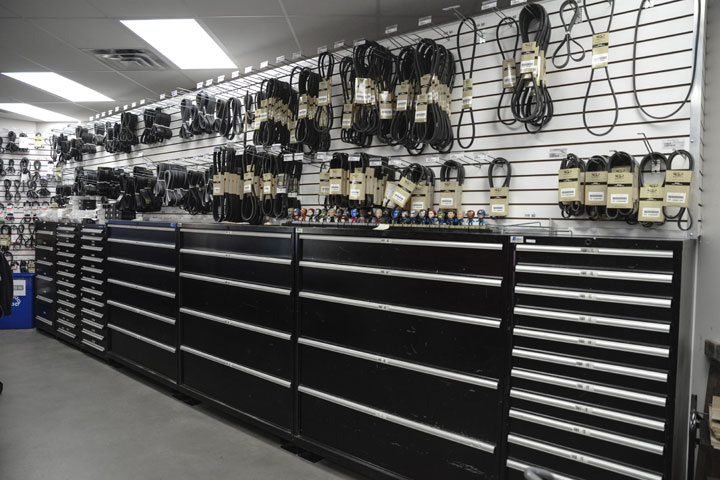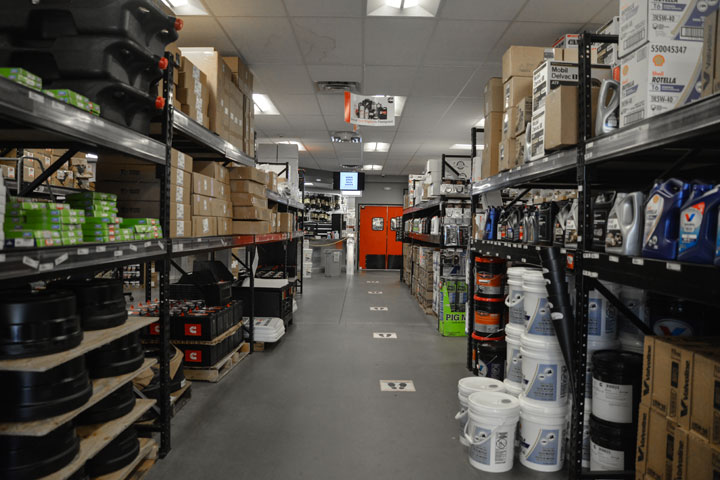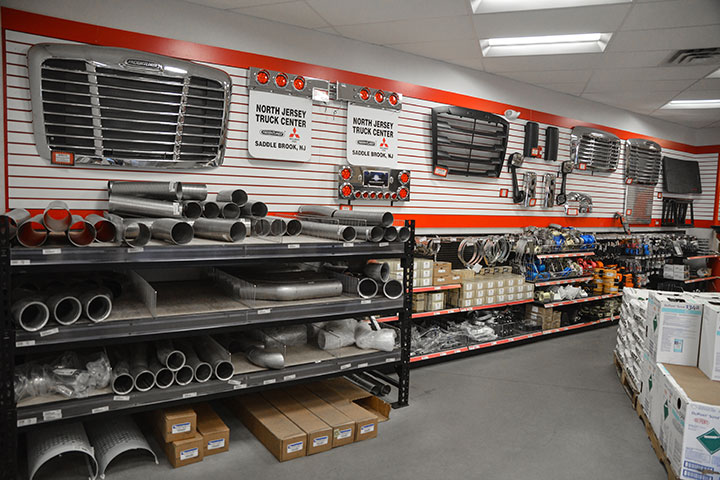Make sure your vehicle is properly serviced and maintained before the winter season begins to keep your fleet up and running. Weather can cause costly damage to your trucks if you’re not prepared. Taking a few minutes to look over these important winter maintenance tips now will help save money and keep your drivers comfortable this upcoming season. If you don’t have a truck maintenance plan in place, it’s the perfect time to schedule one with our service department.The following steps will help you ensure that your vehicle is as prepared as possible to weather the winter roads.
Change Your Oil And Filters
Generally, it’s a good idea to change your oil before the cold sets in. Winter temperatures place especially high demands on your engine’s oil and oil filters. When starting a truck on a cold morning, the engine may experience an initial surge of pressure that can compromise oil filters at their weakest point, which could manifest itself as a blown seal ring, or worse.
Maintain Your Battery
Summer’s heat takes a toll on batteries. That weakness is bound to show up on the first really cold morning, when your truck won’t start because of a dead battery. This is the real reason why batteries tend to fail in winter. Ask us about performing a charging system test, and replace the battery if it’s weak. A fresh battery is your best defense against cold weather.
Ensure Your Visibility
Being able to see where you’re going is always a top priority, but in winter it becomes especially important. Your first stop is to make sure all of your lights are working. Ensure that headlights, tail lights, marker, body and all working lights on your truck are fully operational. If any are dim or yellow, it makes sense to replace the bulbs and clean or replace the lenses.
Replace Windshield Wipers With Winter Blades
When snow and ice can be expected it makes good sense to fill the windshield washer tank with a deicing fluid to help you out on those cold mornings.
Check Your Antifreeze
The name says it all. Antifreeze is one of the most important winter chemicals, because the liquid in an engine’s cooling system is composed of a blend of water and antifreeze. Depending on the brand, either ethylene glycol or propylene glycol in the antifreeze prevents that water from freezing, expanding, and causing expensive damage to the engine. An antifreeze tester can measure the antifreeze’s strength and indicate the lowest ambient temperature to which the engine is protected from freezing. Also, check the coolant reservoir level to make sure it’s filled to the proper level. Top off your antifreeze or flush the radiator if it’s time to replace it.
Inspect Your Radiator Cap
The radiator cap plays a critically important role in your heating and cooling system. Your radiator cap keeps the antifreeze in your vehicle where it should be, and it also keeps the entire cooling system pressurized, which raises the boiling point of the coolant. A leaking radiator cap can cause the engine to overheat and allow antifreeze to leak, neither of which are good scenarios for winter-weather driving. Take a close look around the radiator cap for signs of leaking fluid. To be on the safe side, if the vehicle radiator cap is several years old, replace it with a new one.
Check Your Thermostat
Another critically important component of your vehicle heating system is the thermostat. If it’s not functioning properly, you might find yourself without heat. Thermostats can fail, particularly if the coolant hasn’t been changed regularly and corrosion has appeared. Change the thermostat, and improve your odds of having a warm interior all winter long.
Plug In The Engine Block Heater On Diesel Trucks Each Night, If Equipped With One
This is important to do, even when the temperature feels warm. The longer a truck sits, the more crucial it is to plug it in. Be sure the vehicle is at a normal operating temperature when you plug in your block heater. Block heaters maintain temperature; they are not designed to heat coolant from ambient temperatures.
Avoid Cold Soaks
Cold soaks occur when the engine fluids and the steel of the engine block drop to ambient temperatures. This happens when a vehicle sits for more than a day and it impacts starting and charging systems.
Use An Anti-gel Fuel Additive Every Time You Fill Up To Prevent Gelling
Anti-gels are designed to drop the freezing point of diesel fuel so it will be less likely to freeze in cold temperatures. Try to remember to add the anti-gel before pumping the fuel. This will help ensure a good mix throughout the diesel fuel in your tank. We have several varieties available in our parts department.
Keep An Eye On Your Diesel Exhaust Fluid (DEF) Levels
Many trucks have built in warnings and alerts to prevent DEF levels from being exhausted. They’ll also perform at significantly restricted levels, or not at all, if DEF runs out.
Check Your Tires Often
Freezing temperatures can cause slippery driving conditions. Having correctly inflated tires in good condition will help prevent breakdowns and accidents.
Grab Your Lock De-icer
This may be one of our favorite winter maintenance tips, because it’s inexpensive, requires zero mechanical experience, and prevents headaches. After all, you can’t drive your vehicle in the winter if you can’t unlock the doors. Lock de-icer thaws and lubricates door locks, as well as other types of locks, helping prevent damage, hassles and frozen fingers.
Have Drivers Pre-trip Their Trucks Daily
This should include inspecting their vehicle for frozen components like trailer doors, power cords, etc.
If you have any safety, starting, fuel or heater defroster-related problems, contact us to schedule an appointment to bring your truck in.



